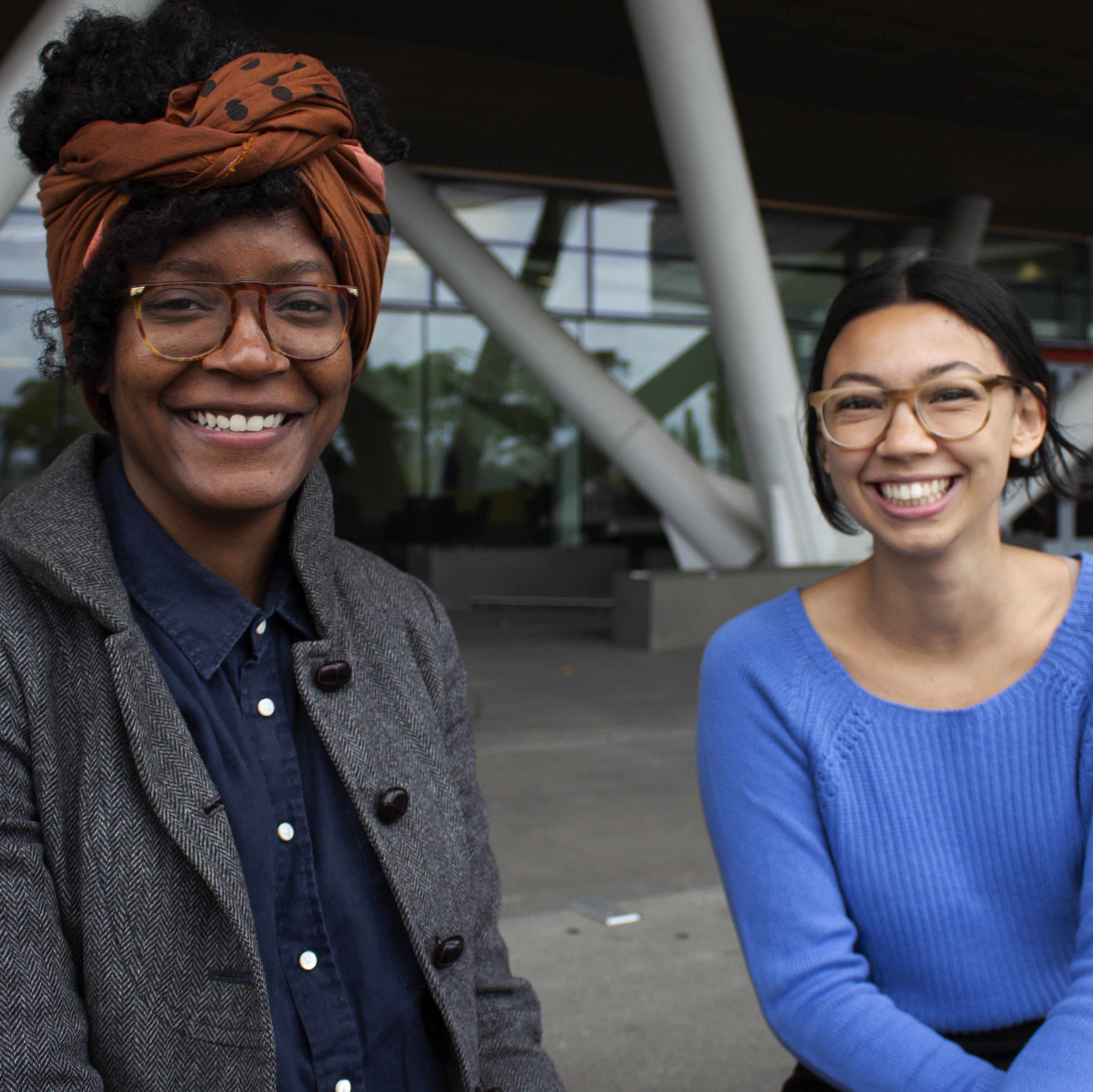Lauren Johnson, intern with CHSE through the OHSU Center for Diversity and Inclusion Summer Equity Research Program, has had what she calls “above average” contact with health care since she was a kid, in the forms of emergency room visits, overnight hospital stays, and outpatient procedures.
Since she was small, Johnson has had lots of time to think about and pay attention to the differences in health care delivery. She remembers being told that her family had "good health insurance" and that the health care she received varied from institution to institution, from medical doctor to medical doctor.
She also remembers that almost no doctor who treated Johnson looked like Johnson, and same went for the people around her receiving treatment – “and this was in New York City,” she says. Over the years, Johnson wondered about the factors that contributed to her anecdotal health-related experiences. “The opportunity at CHSE really seemed like a good place to start,” she says about this summer’s internship. She’s also been curious about the public health impact OHSU has, especially as Oregon’s only academic health center.

Johnson’s academic background is in math and statistics, and in her internship she will examine, on a nationwide scale, the geographic variation in 90-day readmission rates between black and white Medicare beneficiaries who receive total knee replacements. Johnson is working with CHSE data scientist Thomas Meath and principal investigator Hyunjee Kim on the project. Johnson is most excited about furthering her coding skills and working with real patient data. At the end of the summer, she’ll be moving back to the opposite coast to attend Mount Holyoke College as a Francis Perkins Scholar, majoring in data science.
Johnson emphasizes her gratitude to OHSU for accepting internship applications from community-college students. “Most institutions I reached out to for an opportunity required that applicants be part of a four-year institution, and there are serious students at community colleges!”
Since attending Southeast Portland’s Franklin high school, intern Emily Myers has always been interested in interning at OHSU. At every turn in school, she made sure to take on initiatives that would help her become a competitive applicant. Although Myers was born in Portland, she moved throughout childhood among other states, including Mississippi and North Carolina. She always noticed differences, but it wasn’t until college that she realized why. “Health disparities exist between and within these states partly due to the culture, and also because the education system and the health care infrastructure varies tremendously,” she says.
Myers has a bachelor’s in human physiology and global health from University of Oregon, and halfway through her degree learned about public health. She soon became fascinated with the topic. “As I plan to get my Master’s in Public Health, and as I become more knowledgeable about politics, it seems vital that I focus on health management and policy,” says Myers.
With that goal in mind, interning at CHSE felt like the most useful segue. Myers is working with Dr. Jane Zhu, Rose Gunn and Ruth Rowland to investigate how Medicaid agencies engage and include consumers in programmatic changes. Within the larger research project, Myers is working on her own question analyzing how state Medicaid agencies are engaging consumers through the use of social media platforms such as Twitter. Her desired outcome for both projects is to create something that can help direct or inform other researchers. Myers is excited to see how her first qualitative research project and poster turn out, and is also looking forward to learning more about the complexities of health systems and policies.
At the end of her time at CHSE, Myers would like to have learned best practices for conducting, analyzing, and disseminating qualitative research, which will assist her with preparing and applying for graduate school and her M.P.H.
About the Center for Health Systems Effectiveness
The Center for Health Systems Effectiveness researches health care service delivery with the aim of improving the value and sustainability of the U.S. healthcare system. Our mission is to provide the analyses, evidence and economic expertise to build a better and more sustainable health care system.
To learn more about the CHSE, visit us on the web or email us at CHSE-info@ohsu.edu.